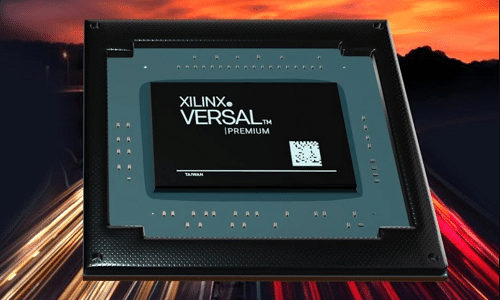The VP1902 SoC is designed to streamline the verification process for complex semiconductor designs and offers 2X the capacity of previous-generation FPGAs.
The SoC features 2X higher programmable logic density compared to the previous generation.

AMD has introduced the AMD Versal Premium VP1902 adaptive system-on-chip (SoC), which is the world’s largest adaptive SoC for emulation and prototyping. The VP1902 SoC is designed to streamline the verification process for complex semiconductor designs and offers 2X the capacity of previous-generation FPGAs. This allows chipmakers to innovate and validate ASICs and SoC designs more efficiently, bringing next-generation technologies to market faster. The VP1902 adaptive SoC provides industry-leading capacity and connectivity, offering 18.5 million logic cells, which is twice the programmable logic density of the previous generation Virtex UltraScale+ VU19P FPGA. It also delivers four times the aggregate I/O bandwidth, enabling chip designers to confidently emulate and prototype next-generation designs for AI, autonomous vehicles, Industry 5.0, and other emerging technologies.
The growing complexity of AI workloads in chipmaking necessitates advanced solutions, and FPGA-based emulation and prototyping offer high performance for faster silicon verification. By leveraging FPGA technology, chip designers can emulate and prototype their designs before manufacturing, reducing the risk of errors and enabling software development to start earlier in the design cycle. AMD claims that, through Xilinx, the company has a strong background in emulation devices and thus brings extensive experience and leadership in this area. The VP1902 SoC delivers industry-leading capacity and connectivity, with 18.5M logic cells and 2X higher programmable logic density compared to the previous generation. It also offers unmatched debug capabilities, enabling faster iteration and bug fixing. AMD collaborates with EDA leaders Cadence, Siemens, and Synopsys to provide a scalable ecosystem of solutions for chip designers, ensuring access to comprehensive development tools and support.
According to the company, In addition to capacity and connectivity, the VP1902 SoC leverages the Versal architecture to provide enhanced debugging capabilities. It offers up to eight times faster debugging compared to the previous generation FPGA, allowing designers to iterate designs quickly and address bugs before tape-out.
Advance Micro Devices (AMD) is an American multinational semiconductor company based in Santa Clara, California, that develops computer processors and related technologies for business and consumer markets.












